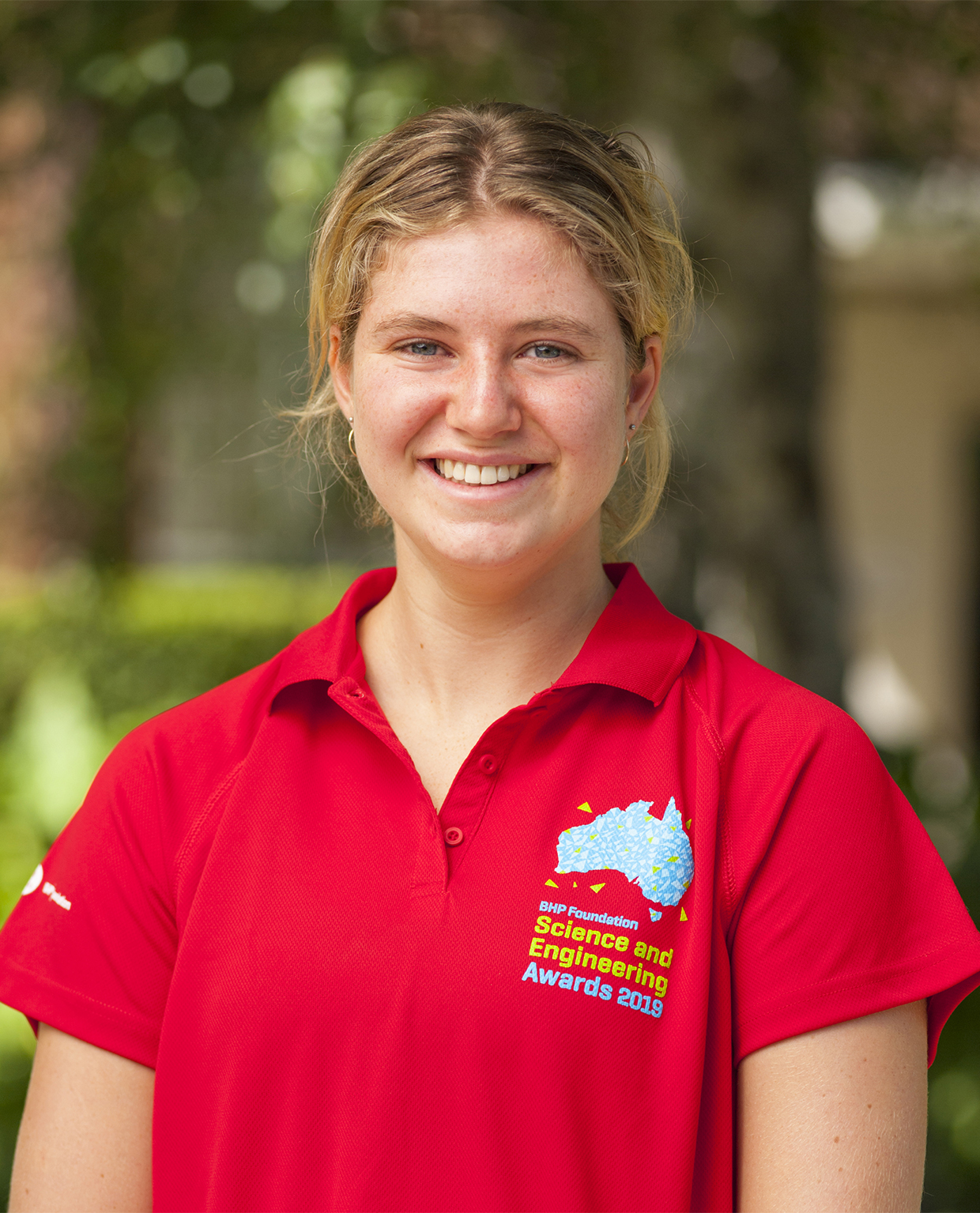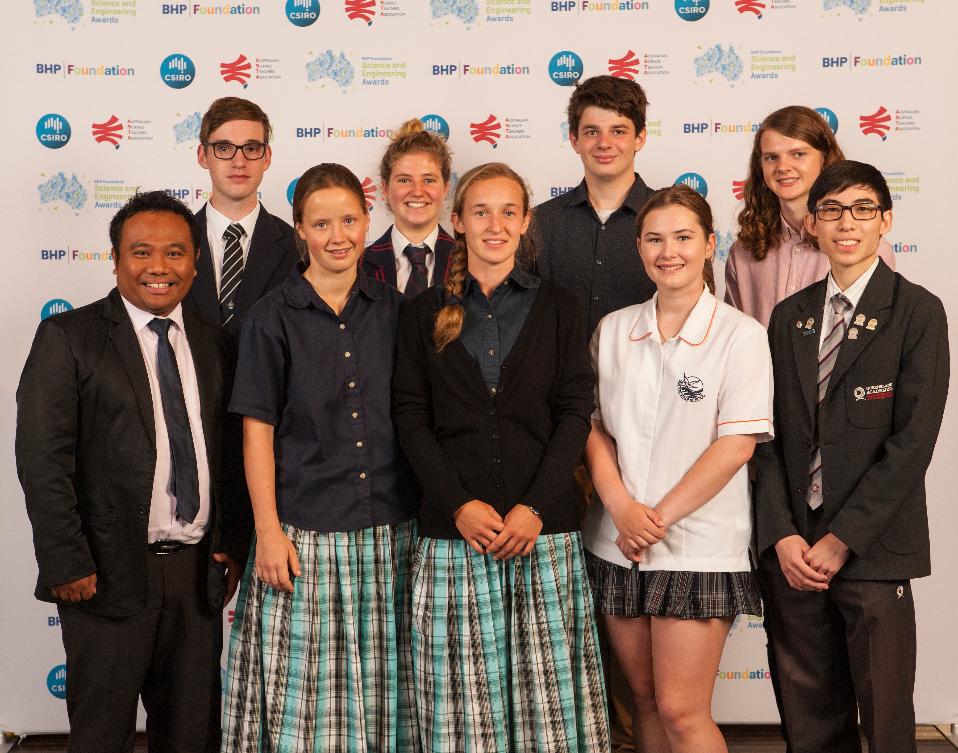May 5 - 11, 2019: Issue 403
Aussie Science Student Rows Her Way To The USA
Lucy Lake's rowing oars are taking her over 12,600km from her home in Sydney to Phoenix, Arizona, USA to represent Australia at the Intel International Science and Engineering Fair (ISEF).
Earlier this year, the 18-year-old Barker College student received second place in the Engineering category at the national BHP Foundation Science and Engineering Awards for her project, a new rowing oar design called Phase 3. The design mimics the tubercles on the edge of a whale flipper which reduces aerodynamic drag and slippage on the blade through the water – just like they do on a whale.
Lucy said the biggest challenge was working on the technical design and production for a year as she had to learn a whole new skill set. Then during the first on-water trial she experienced a malfunction with the connector section and lost one of her blades.
"I was really crushed - a year's hard work and then just one connector breaks and my blade sinks to the bottom of the ocean."
Despite this setback, Lucy continued refining her project and is now excited to share her knowledge and interests with other students from around the world who share the same passion for STEM as she does.
"It's really exciting and it makes me realise that what I've done is no longer just about myself, it's about the bigger picture. It has been amazing to be able to have all these opportunities to push my project further than I've ever thought and develop it into something bigger and better."

Lucy Lake - photo courtesy CSIRO
Lucy will be in good company at Intel ISEF with five other 2019 BHP Foundation Science and Engineering Awards student winners Ivy Brain, Mitchell Torok, Josiah Cheng, Anne Zimmerman, Tiarra Meier as well as 2019 BHP Foundation Science and Engineering Teacher Award winner Allan Alipio and 2018 Indigenous STEM Awards Winners Jordan Griffiths and Jordan Salmon.
BHP Foundation Science and Engineering Awards recognise and reward school-age student who have undertaken innovative science or engineering projects. The Awards are a partnership between the BHP Foundation, CSIRO and the Australian Science Teachers Association and have been running since 1981.
The Intel International Science and Engineering Fair (Intel ISEF), a program of Society for Science & the Public is the world's largest international pre-college science competition. Each year over 1,800 high school students from more than 75 countries, regions, and territories are awarded the opportunity to showcase their independent research and compete for $4 million in prizes. The BHP Foundation and Intel Foundation provide support for the BHP Foundation Science and Engineering Awards Australian delegation attending the fair.
For more information go to BHP Foundation Science and Engineering Awards

ISEF Australian Delegation - photo courtesy CSIRO
Winners Of 2019 National High School Science And Engineering Awards
Winner of the Investigations Category Macinley Butson's SMART System is a project investigating two new devices working together to globally reduce unwanted skin and subcutaneous tissue dose delivered during radiotherapy cancer treatment. This is performed with a Specialised Magnetic Array incorporated with a V2.0 Scale Maille Armour for Radiation Therapy.
Winners of the Engineering Category, Isaac Brain and Mitchell Torok developed aWear to prevent hospitalisations from falls in older Australians for people living in residential aged care or assisted living. It consists of a physical watch that links to a database that can SMS nursing staff about residents status and location in real-time. The watch features a button to send an alert and an accelerometer to facilitate fall detection.
Winner of the Innovator to Market Award, Macinley Butson was inspired to develop a way to measure ultraviolet radiation levels required for solar disinfection of water. The SODIS sticker accurately measures the solar UV exposure required to sanitise drinking water through a high accuracy transparent, UV sensitive film coupled with a partially UV blocking filter. At just over a cent to produce, it is a cost-effective way of assisting in water purification.
CSIRO Chief Executive Dr Larry Marshall said the national science agency is committed to ensuring the next generation of leaders have the science, technology, engineering and mathematics (STEM) skills needed to navigate disruption in a rapidly changing world and innovate their way to a better future.
"STEM skills go well beyond the classroom, they teach our students to think creatively about problem-solving, which will be critical in a future shaped by genetics, synthetic materials, AI, and other disruptive technologies," Dr Marshall said.
"This year’s student finalists have shown our future is in safe hands as they’ve paired outstanding STEM skills with a passion for solving the big challenges faced by Australia, the kinds of challenges we tackle every day at CSIRO."
BHP Chief Executive Officer Andrew Mackenzie said the awards had been supporting young people’s achievements and interest in STEM since they began in 1981.
"We've seen alumni from the awards go on to do extraordinary things and I have no doubt that the winners and finalists from this year will become leaders in their chosen professions,” Mr Mackenzie said.
"These awards help us uncover and develop the next generation of innovators. The dedication and passion these students have for STEM is inspiring."
The BHP Foundation Science and Engineering Awards are a partnership between the BHP Foundation, CSIRO, the Australian Science Teachers Association and each state and territory Science Teachers Association. Six of the finalists will have the opportunity to go to Intel International Science and Engineering Fair (ISEF) in the United States of America where over 1800 high school students from 75 countries, regions and territories are given the opportunity to showcase their independent research.
Investigations
Winner: Macinley Butson, The Illawarra Grammar School, NSW, The SMART System
Second: Tiarra Meier and Anne Zimmerman, Home School Elsmore, NSW, Soil Biology: The Missing Link in Pasture Production?
Third: Josiah Cheng, Queensland Academy for Science, Mathematics and Technology, QLD, An in vitro study on the effects of carbohydrate-derived substances on bacterial growth.
Engineering
Winner: Isaac Brain, Launceston College, TAS and Mitchell Torok, Rosny College, TAS, aWear
Second: Lucy Lake, Barker College, NSW, Phase3
Third: James Casey-Brown, Barker College, NSW, Surf Safe
Innovator to Market
Winner: Macinley Butson, The Illawarra Grammar School, NSW, The SODIS Sticker
Teacher
Winner: Allan Alipio, CAPS Coolgardie, WA